The story of the Meihachi Baseball Club 6: The first humiliation in the manager’s life
The story of the Meihachi Baseball Club 6: The first humiliation in the manager's life
He is just one step away from his dream of playing in the Koshien. Despite the restrictions placed on him by his school, which is one of the best preparatory schools in Tokyo, there is a man who still earnestly aims to make it to the Koshien National High School Baseball Championships. He is Takafumi Sugihara, manager of the Meio Nakano Hachioji Baseball Club. This 240-day documentary follows his struggles and anguish as well as the physical and mental growth of his students.
Results of the spring tournament are the key to the fate of the summer season
The baseball team of Meio Nakano Hachioji High School was banned from club activities for more than one and a half months from January 20, 2022, in consideration of the application of “priority measures to prevent the spread of the disease. The coach, Takafumi Sugihara, was forced to reconsider his vision for the team. After the team resumed its activities, there was a coronary infection in the club, the main players were injured, and above all, the atmosphere of the team did not get excited even though the tournament was approaching. The Tokyo Metropolitan High School Spring Baseball Tournament was the result of the commander’s anxiety.
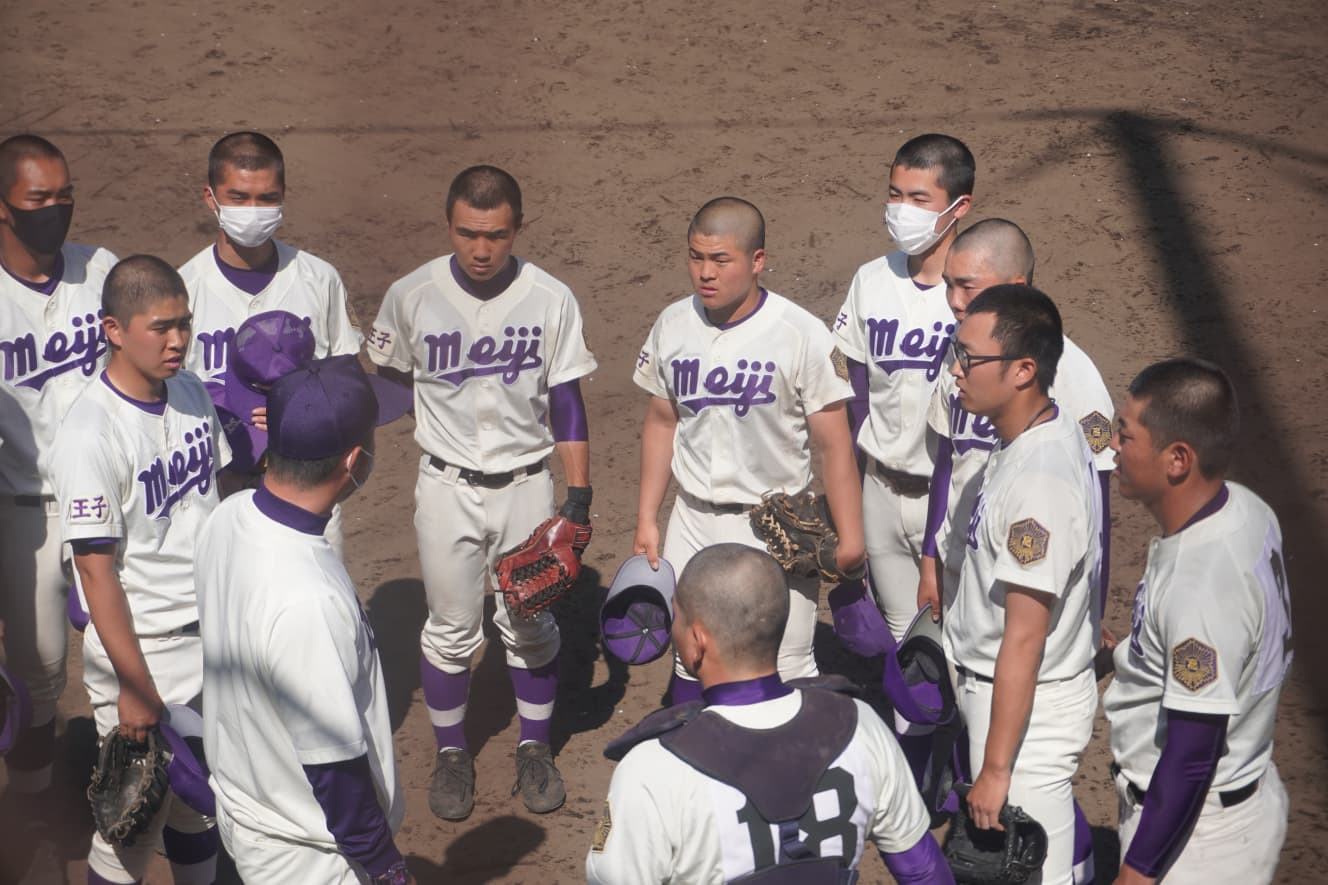
For Meihachi, the spring tournament is more important than for their rivals. The team’s goal of participating in the Koshien (the National High School Baseball Championship) is not at stake. However, not only do they usually spend a lot of time studying, but they also get about four hours of sleep a night before exams. They need as much time as possible to prepare for the West Tokyo Tournament, which starts immediately after the first semester’s final exams.
In 2010, the last day of the examinations was July 8, and the tournament started the following day, July 9. Because it was before an important tournament, the “no club activities one week before the exam” was waived and special practice was allowed, but it was only for about one hour. For this reason, the seeding for the third round is a must. And it is the spring tournament that will decide this.
Meihachi has been seeded three times in the summer in the past five years, and in the spring of 2009, the team made the top eight despite having only nine hours of club activities in January and February due to Corona. In the spring of 2009, the team finished in the top eight, despite having only nine hours of club activities in January and February combined due to Corona. In 2010, however, the situation was even more difficult.
A member tested positive for corona, and the club had to suspend activities.
On March 8, less than a month before the first game of the spring tournament, the voices of Sugihara and the students finally returned to the Meihachi stadium, but after about 10 days, a member of the club was confirmed to be positive for corona and activities were suspended. In view of the infection situation in Tokyo, we divided the practice into two groups for half a day each for crisis management. It is not easy to improve the condition of the pitchers in particular.
Not only that, but they also had some breakdowns and scored 20, 12, and 7 runs in the open games on the 26th, 27th, and 29th. Haruto Watanabe, who had taken over the ace number in the fall, also did not perform well, and he was so overwhelmed with anxiety that he asked Sugihara, “I have tried in my own way, but what should I do?
Haruto had won the second place in the South Kanto Region when he was a junior high school student attached to Sugihara’s school, and he had a good background. So, even if we were to be hard on him, he wouldn’t become so bitter, but as expected, he was holding back.
Even so, Watanabe started and pitched well in the final open game against Yasuda Gakuen High School before the tournament on the 31st, winning 6-0. The batting lineup kept getting hits, so at that time, Sugihara was relieved to know that the team would be okay.
But then, Sugihara realized that the game was not going to be all right. However, after that, Sugihara felt a strong sense of uneasiness in the practice sessions.
He tried his best, but the atmosphere was gloomy.
The atmosphere of the team was not exciting,” said Sugihara. I tried to encourage them by saying, ‘Let’s make this an interesting tournament by putting all our energy into it,’ but they just went along without a care in the world. Even when they fouled a bunt in sheet batting, no one said anything. There was no discipline in the practice. But that doesn’t mean that the students are feeling disconnected. They are definitely working hard. Why is the atmosphere so dark? To be honest, I couldn’t figure out the cause.
From January 20, not only were club activities banned, but classes themselves became online, so the students could not see each other at school. Even so, the students kept in constant communication through social networking services and other means, and they kept motivated to practice by uploading videos of their swings and checking them against each other.
Sugihara’s trust in the students has deepened over the autumn and winter, and during the period when the club activities were banned, he created an online class for the baseball team, but he only gave them what they needed to know. In addition to having each group of students check and report on the status of their practices, etc., we also entrusted each student with determining how to practice, approach, and progress toward the tasks they had set for themselves and how to accomplish them.
Because of the difficult situation, we tried to nurture the buds and thicken the trunks of the students.
There was no process that made them lack cohesion as a team, and for that reason, Sugihara twisted his neck many times.
In the end, without being able to change the atmosphere in practice, they faced their first game of the spring tournament as the fifth seed, a second-round match against Tokyo Metropolitan Chofu Minami High School on April 6. The starting lineup was decided on after much last-minute deliberation. Among them were the names of third-year player Yufu Yoshii and outfield leader Tsuneto Seki, who had been thinking about the team more than anyone else, something that had not been the case in the fall.
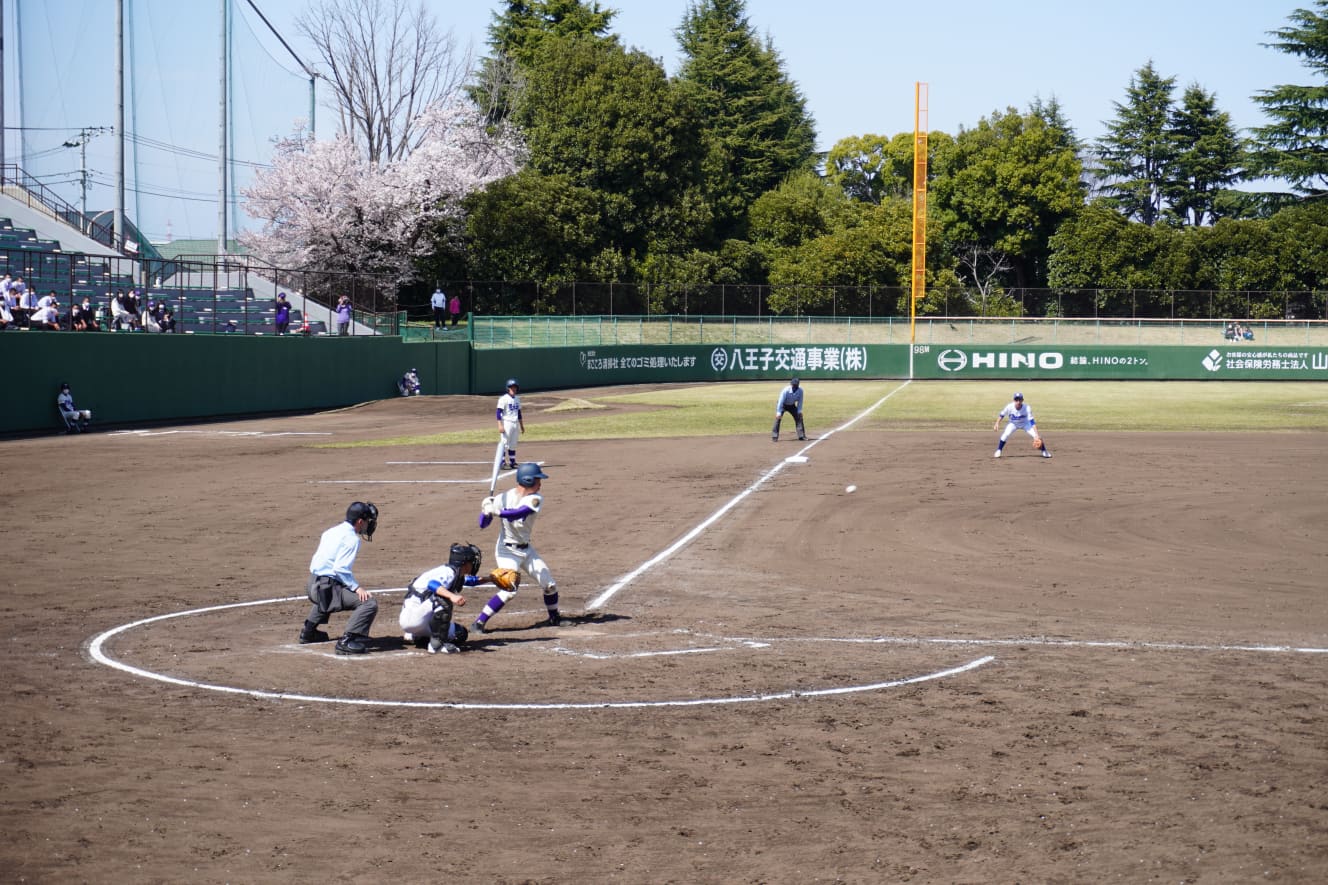
There were various options, but they all had their merits and demerits, and I wanted the third-year students to do their best. Seki has always been a catcher and attentive. He was entrusted with the starting mask in the game against Yasuda Gakuen, and the combination with Haruto was no problem. Yoshii was another one who caught my attention from the fall in terms of his personal growth. I wasn’t very good at expressing myself, but I’ve gradually become able to do so,” he said.
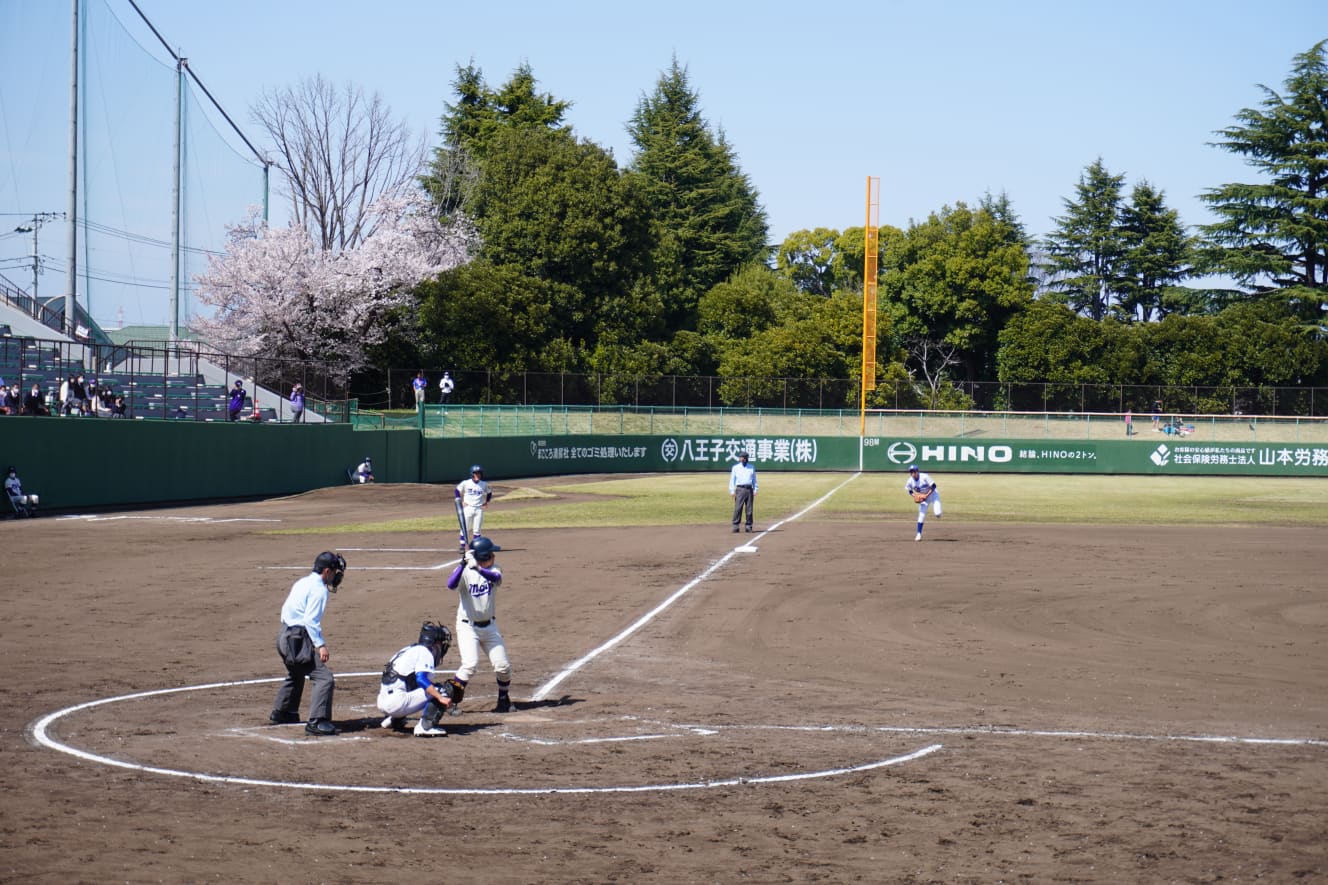
The coach and the team members, their feelings are at cross purposes, and their trust in each other is wavering.
Sugihara recalled a day in mid-November 2009, when the daytime sun was still mild.
During practice at the Meihachi baseball stadium, the players were not showing a high level of awareness in their movements during the seat knock, and they imposed a joint responsibility: “If even one of us makes a mistake, it will end there. As Sugihara was about to finish his knock, Yusuke Shikata shouted to him, “I’m fine.
He said, “I don’t mind, let everyone else take the knock!”
Then get out of the way!
Shikata also had too much on his mind to speak, but he was not sure if it was the right thing to say or not. In any case, I knew I couldn’t let it end like this. But he was serious about baseball, so he couldn’t simply back out.
I don’t want to!”
That’s not what you’re saying!”
I know my words are contradictory. But I want to do something about it. Tears welled up in Shikata’s eyes. Sugihara bites his teeth. He bit his teeth, not at Shigata, who was being honest with him, but at the other students who were just watching their exchange. He is not talking to Yotsugihara, who is just watching the exchange between them, but to the other students. Is Shikata’s mistake someone else’s problem? Is it something they have to face as a team, but they feel nothing about it? Do you have nothing to say?
Sugihara looked at the students with a strong gaze, and filled his words with his feelings.
If we continue like this, nothing will change!
At that moment, Yoshii was guarding the second position next to him. He was troubled by his thoughts as he was being rocked by the school bus on his way home. When he arrived at the station, he could not get on the train heading home. He reaches for his phone on the platform. I have to tell Sugihara what I am feeling now.
If I don’t do anything, I’m afraid of what will happen to the trust between me and Sugihara-sensei.
His voice was trembling. But Sugihara replied without hesitation: “You protected yourself today.
You defended yourself today. You defended yourself today. You said you would be able to participate in the game, but what do you mean, you will participate in the game? You’re going to run away in the end anyway!
I’ll show you with my technique that I’m not like that.
You’re not going to do that. You’re going to show them that you’re doing your best!
Even in these days when it is said that adults can no longer scold children, he never shows any mercy. It is for the sake of the players. He is willing to take the role of being hated. In this day and age, there may be smarter ways to treat children. However, Sugihara tries to nurture his students and organize the team in a serious and polite way. The best part of the job is that the students respond to him.
Shikata also said, “At one time, more and more people said, ‘I am doing this,’ or ‘I am a 00.’ So I asked, ‘What is it? So I said, ‘So what?’ I replied. I always tell him that evaluation is not something you do yourself, but something those around you do, and I think he remembered that. Even during the days of rehabilitation after the cleaning surgery, he looked over the team and was very excited and supportive. Hosaka, too, is changing.”
Captain Shuya Hosaka on his own
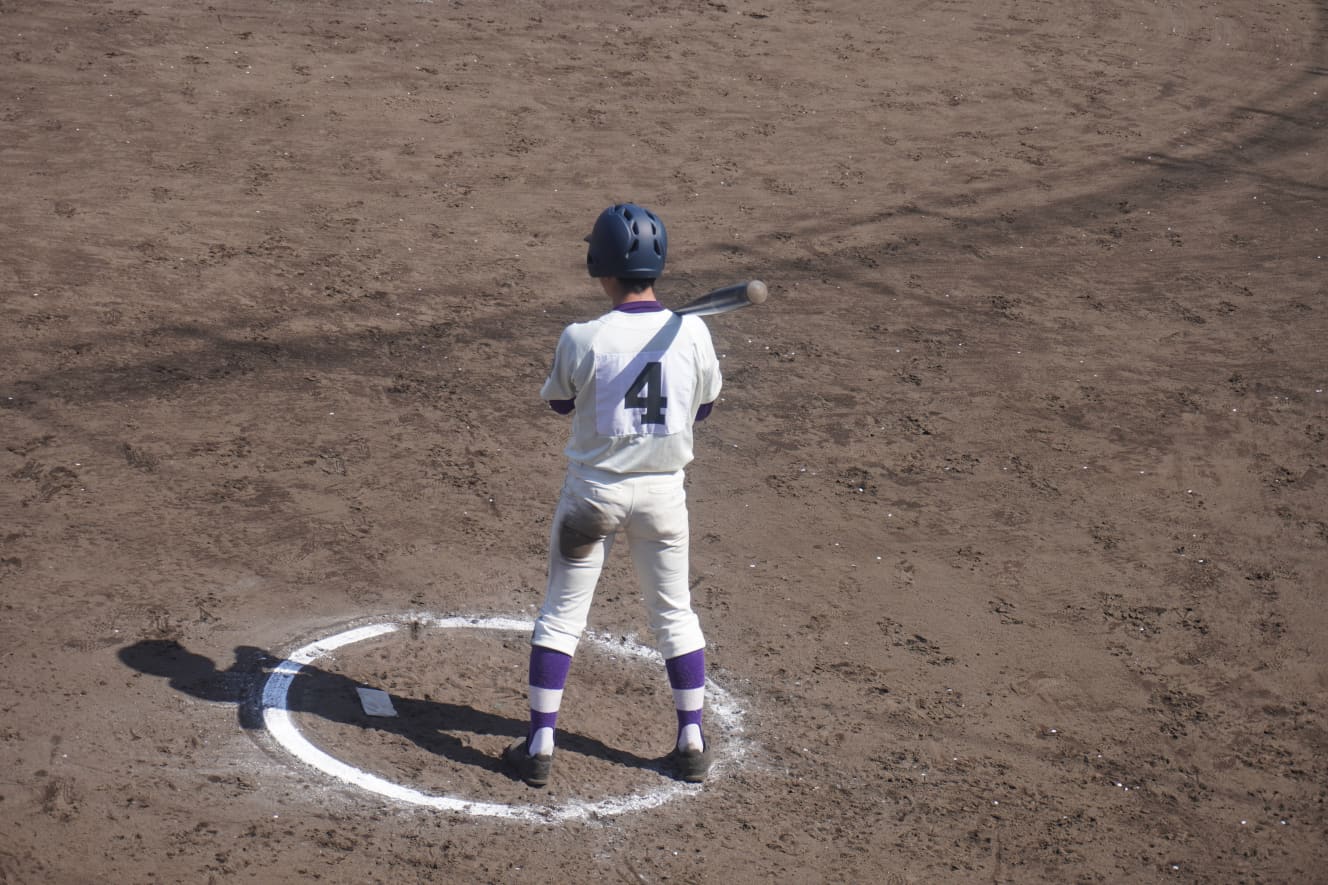
One day in December, Shuya Hosaka’s baseball notebook showed a change after he was severely criticized for his “wait-for-directions” attitude, which he has yet to get rid of.
When Mr. Sugihara confronted him frankly with the current state of this team, he couldn’t say anything back.
Sugihara was surprised. Until then, he had been writing things to mend the surface, but now he was able to look at himself objectively and write words admitting his faults.
The way people looked at Hosaka also changed. When Hosaka gives instructions during practice and when she speaks, the expressions on the faces of her peers become much tighter than before.
Hosaka has been on his own since December to January. I think he realized that he had to change. Until now, he would say things on the spot to avoid getting scolded by me, and in the end, he would just leave things to me.
During practice, when I would ask, “What are you going to do at this time? But now he says, “I want to swing the bat a little more, because I don’t swing it enough. He also began to see the team as a whole. He would ask me if he could check something about a position that I felt he needed to work on, and I began to think that I should leave it to him.
I had high hopes for the third-year students, who have come to face their responsibilities and are ready to take on them in the spring tournament. The cleanup lineup consisted of Hosaka, Shikata, and Watanabe, with Takayuki Fukumaru at No. 2, who had missed the fall benches but had taken the initiative in creating a positive mood during the hard winter practice sessions.
The team won the game 8-1 in seven innings, but Sugihara said, “It was not a game we deserved to win.
I told the students about it, but I couldn’t get through to the people in the stands to make them want to cheer for us. The tournament is a presentation, a place to express that we have worked so hard during the winter. It doesn’t matter if they fail, they will compete. But I was lost, thinking about unnecessary things, and I wasn’t ready to compete.
The next day, while reviewing the game from the top of the first inning, the students practiced runners on every count, checking signs, and practicing how to score runs, but they made mistake after mistake. The next day, we reviewed the top of the first inning, checking runners’ movement and signs for each count, and practicing how to score runs, but the students kept making mistakes.
Sugihara’s first humiliation as a coach
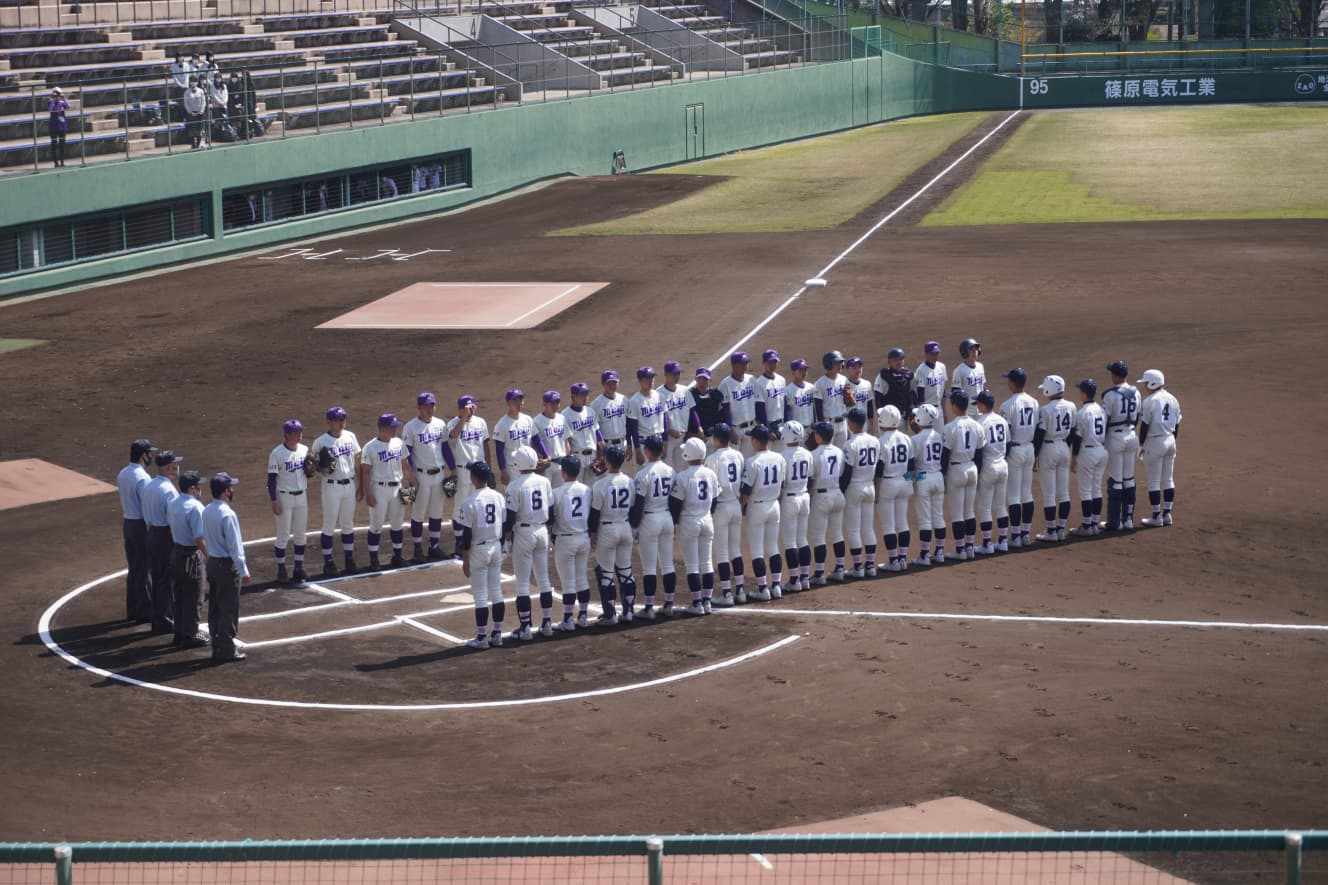
Even in this important match, we seemed to have taken on our opponents from the start. Watanabe, the starting pitcher, was unable to show his true control of the ball, and although he was able to avoid a bases-loaded jam in the top of the 1st inning by allowing one run on a sacrifice fly, he gave up six runs in the top of the 2nd inning. The momentum of the opponent was getting the better of them, and they were unable to show the tenacity that is their forte. The batting lineup was also drawn in by the fast tempo of the opposing pitcher, and we were unable to take our own swings. 1-11, a loss in five innings was Sugihara’s first humiliation as a manager.
In the top of the fifth inning, we were down by nine runs, and with one out and two outs on a groundout to shortstop, I sent out a message. The other pitcher is not very good, so if we can get out of this inning, we can score two or three runs. If that happens, I don’t know what will happen in the game. I said, ‘Let’s be patient. I didn’t want to take it for granted that we would score a run, and I wanted to see how the students would persevere after getting out of the inning. However, the next batter gave up the 11th run on a wild pitch on the first pitch. The weakness of this team came out as it did. It was an opportunity for the students to see the fear, the importance, and the reality of one pitch.”
I threw a challenge to the students: “Run, defend, plus attitude.
“Running, offense, defense, plus attitude. Passion for baseball. There was no element of winning in all of them. We were naive. That’s why we lost to a team that had worked hard. This game was hard, wasn’t it? But this was the reality. Except for the exams, the summer tournament is only about two months away. It would be a miracle for the team to make a complete change.
But if we don’t make a drastic change, the summer will come to a painful end. Can they overcome their own naivete? I want the team to reset here and bring out players who can revitalize the team, players who can support the team, players who need to be on the team, and players with individuality. We need chemistry as a team. What do you want to do now? How do you want to win? I want you to think about that.”
Time is running out before summer.
He then looked back at himself.
I myself wondered how I had done in the lead up to the games. I prioritized the open competition and didn’t have enough time to make corrections. The foundation wasn’t solid, but I had to move forward and put up a good front again. I didn’t want to do so, but I had to. I convinced myself that I did, but was that really the right thing to do? I guess I didn’t spend enough time communicating, and I let myself lose the ability to think for myself. I feel that I was immature, not being able to pin down and lead the baseball I was trying to do. Was there a better way in this situation? I ask myself that question.”
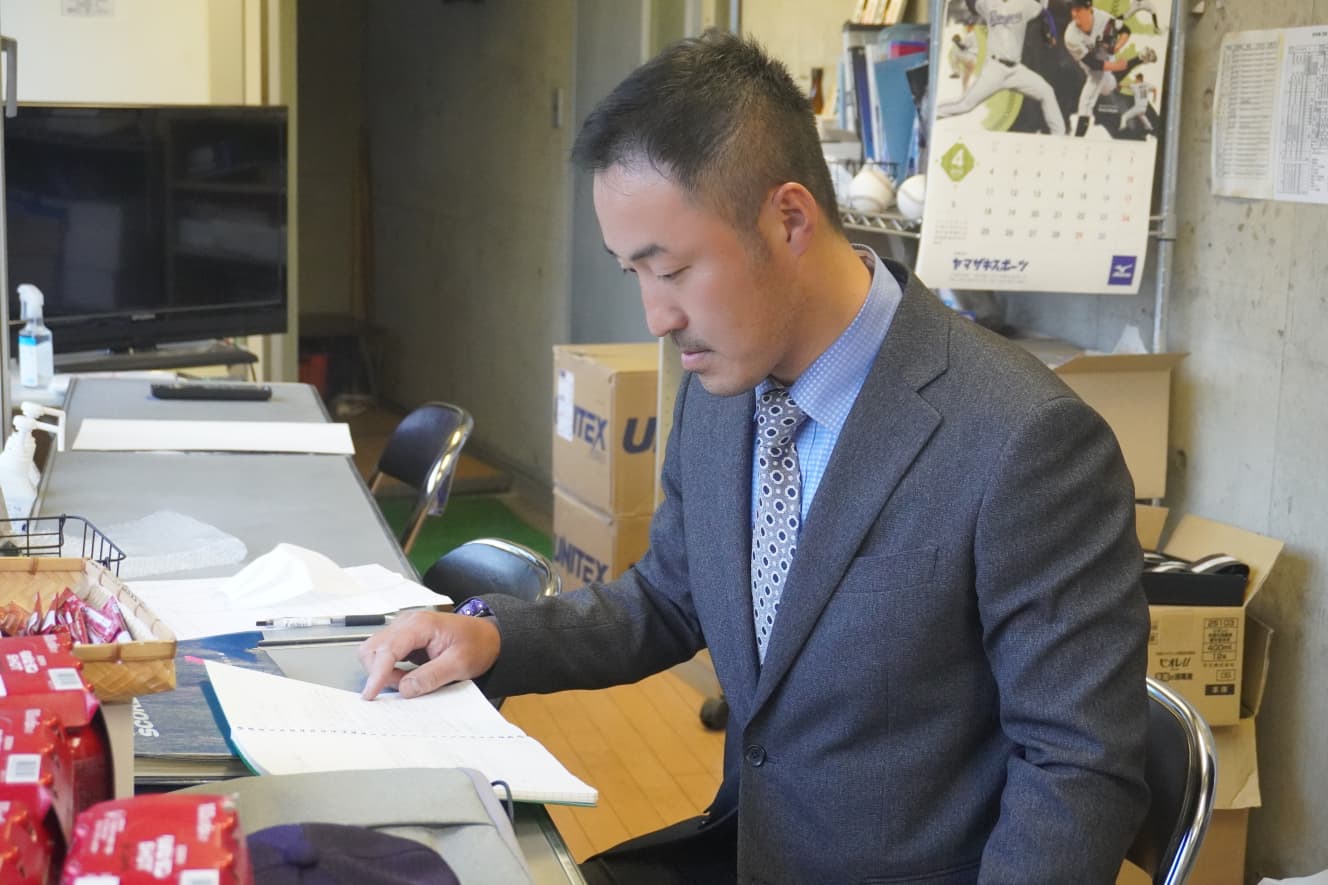
Sugihara does not intend to stick to his own coaching methods. He says that if the students have their own way of doing things, that’s fine.
If that is the way the students want to play, that is fine with me. I want to do my best to support them so that I can see their happy faces. The day after the defeat, Mr. Ishida (Takashi, advisor) said to me, ‘These students are doing very well under these circumstances,’ and he was right. The third-year students, in particular, were told many harsh things by me, more so than in previous years, and normally they might have been ready to give up. But they don’t break.
They study hard and play baseball hard. They are also growing up. They are serious kids, so with just one chance, they could grow even more. I want to leave something behind for them, not just a baseball result.
There is not much time left before summer. What kind of answers will the students bring to Sugihara?
(To be continued in Part 7)
Interview cooperation: Fumihiko Washizaki